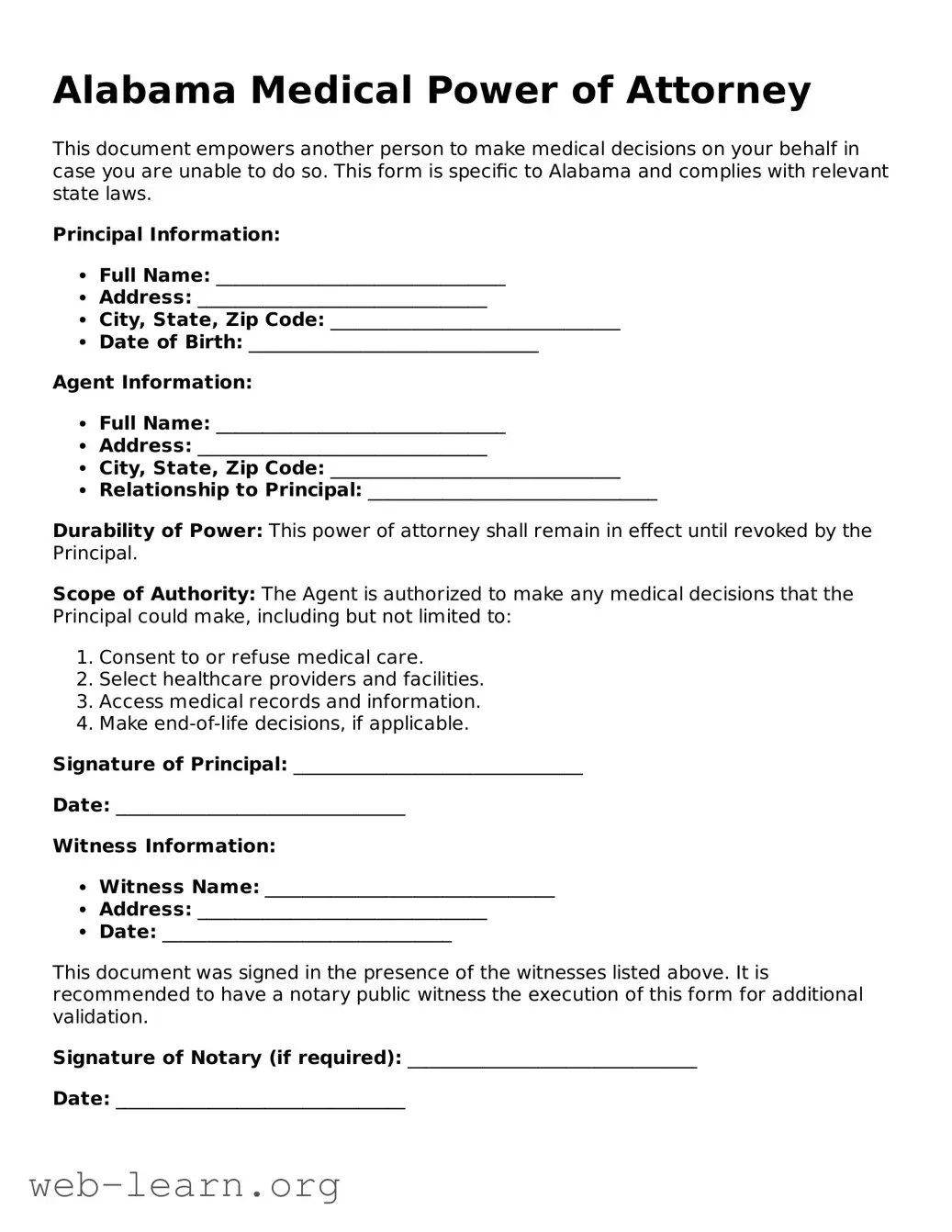Filling out the Alabama Medical Power of Attorney form can be a straightforward task, but many individuals accidentally make mistakes that can lead to complications later. One common error is failing to select a suitable agent. This individual should be someone trustworthy, and it is crucial to choose wisely. If the chosen agent cannot or does not want to act on your behalf, then your wishes may not be followed.
Another frequent mistake is not providing clear guidance about medical decisions. While the form allows broad authority, specific instructions can guide the agent in decision-making. Omitting this information can leave them uncertain, potentially leading to situations that do not reflect your values or desires.
Many people forget to sign and date the document. Without a signature, the form is not legally binding. Even if the rest of the information is perfect, missing a signature can cause the document to be invalid when it is needed most.
Some individuals overlook the requirement for witnesses or notarization. Alabama requires that the Medical Power of Attorney form be signed in front of two witnesses or a notary. Failing to meet this requirement can nullify the document's effectiveness, which can be incredibly frustrating during critical times.
People often ignore updating their forms after significant life changes. Events such as marriage, divorce, or the death of an agent should prompt a review and possible revision of the Medical Power of Attorney. Not keeping the document current can result in unwanted consequences.
Another mistake involves not discussing the form with the chosen agent. Open communication ensures that the agent understands your wishes and is willing to take on this responsibility. A lack of discussion can lead to misunderstandings or reluctance to act when the time comes.
Some individuals misunderstand the implications of the form, believing it gives their agent full control over all types of decisions. However, it primarily deals with medical decisions. Clarifying what the agent can and cannot do is essential for effective representation.
Another common error is failing to keep copies of the completed form. Without copies, the agent and healthcare providers may not have immediate access when needed. Store duplicate copies in easily accessible locations to avoid delays in critical situations.
Some people also neglect to inform their healthcare providers about the Medical Power of Attorney. It is essential that medical staff are aware of the document and know who the agent is. This communication prevents confusion during medical emergencies.
Lastly, many submit the form without reading the instructions carefully. Each section of the form has specific requirements and nuances that are important to follow. Rushing through the process can lead to inadvertent mistakes that compromise the form's intent.
